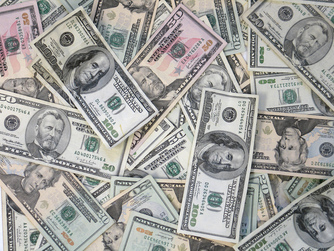
My route had only 34 customers, but that didn’t worry me. Every one of them lived by the Phoenix Country Club, an exclusive Arizona neighborhood of large estates and stately fountains. Although he had since moved, Barry Goldwater had lived there about the time he ran for president. The tips, I told myself, would be enormous.
| | I could not have been more wrong. At Christmas, I was lucky to get a morsel more than was owed for the actual service, and it generally came wrapped in a complaint or two about the way I did my job. My parents and friends assured me this was to be expected. The rich did not get that way by being overly generous, they said. As it turns out, that was a well-meaning but milder form of the sort of prejudice that fuels the “Occupy” movement, anarchists and other groups anxious to tear down the more fortunate. People with less can feel empowered by a sense of moral superiority over those who have more, but, as I’ve learned later in life, it’s a false pride. It’s every bit as damaging as the character flaws the poor accuse the wealthy of possessing. But wait, you say, hasn’t study after study shown that poor people give more generously than the rich? Yes, they have. In recent days, the Chronicle of Philanthropy released a study of charitable giving based on the itemized deductions on tax forms in 2008. The results were clear. Households earning between $50,000 and $75,000 per year gave an average of 7.6 percent of their discretionary income to charity nationwide. Those making more than $100,000 gave only 4.2 percent. That’s similar to a study by McClatchy Newspapers in 2009 showing the poor giving 4.3 percent to charity compared to 2.1 percent from the rich. Methodologies and definitions obviously differed between the two studies, but the message was the same. The more you make, the less you share. However, there was an interesting twist to the Chronicle of Philanthropy study. It found that wealthy people who live in zip codes with people less fortunate than themselves give a larger percentage to charity than those who live among the wealthy. We are all human beings, after all, with the same motivations and desires. Rich people are not jerks — not necessarily, anyway. Some of them just act that way because they don’t know better. Paul Piff, a doctoral candidate at the University of California, Berkeley, has studied this phenomenon. He observed that the rich do indeed tend to be more rude and uncaring as a natural part of their behavior. When he placed them in a situation with someone of lesser means, the wealthy would avoid eye contact, check their cell phones and look otherwise disengaged, while the poorer people were smiling, nodding and happy to communicate. However, his research also found that poor people began to act liked just like the rich as they perceived they had achieved a higher status. On the other hand, people who work for philanthropic organizations say the rich can become suddenly generous when made aware of suffering around them. I’ve personally known some extremely generous wealthy people. John Wesley may have said it best way back in the 18th century: “One great reason why the rich in general have so little sympathy for the poor is because they so seldom visit them. Hence it is that, according to the common observation, one part of the world does not know what the other suffers.” We can change this, but only by removing the borders between those two worlds. In philanthropy, as in politics, class divisions tend to reinforce prejudices and give everyone a stronger foothold on ignorance. Human interaction is an antidote that can work wonders. If I had known this years ago in that Country Club neighborhood, I would have invited my customers to ride around on my bicycle for a while. |

 RSS Feed
RSS Feed

